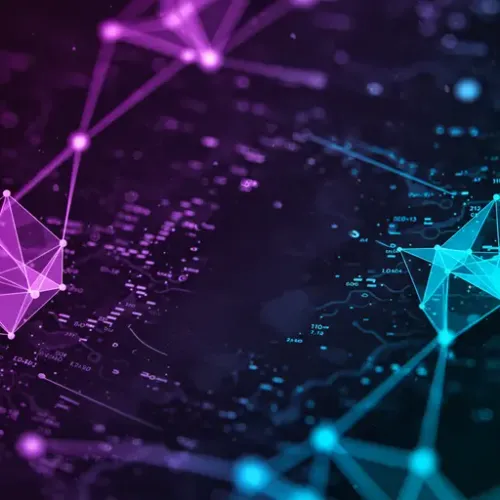OpenAI Connects ChatGPT to Enterprise Data to Surface Knowledge

The AI Report
Daily AI, ML, LLM and agents news
Imagine the collective intelligence of your organization, currently fragmented across countless documents, emails, chat threads, and project trackers. This dispersed knowledge, though invaluable, often slows decision-making and saps efficiency. What if your most powerful AI tools could seamlessly tap into this internal universe, transforming from general assistants into custom analysts steeped in your company's unique context?
Unlocking Enterprise Knowledge with Custom AI
OpenAI is bridging this crucial gap by enabling ChatGPT to connect directly with your enterprise data. This significant evolution moves beyond generic generative AI, allowing the model to surface specific company knowledge and provide highly relevant, context-aware insights.
No longer will your AI be an external brain. Instead, it becomes an integral part of your operational ecosystem, capable of understanding and synthesizing information from platforms like Slack, SharePoint, Google Drive, and GitHub. This capability stems from a refined version of its underlying model, meticulously trained to cross-reference multiple internal sources, with every answer transparently citing its origin for verification.
Practical Applications for Enhanced Productivity
- Strategic Briefings: Prepare for critical client calls by asking for a comprehensive briefing. ChatGPT can consolidate recent Slack messages, email correspondence, Google Docs meeting notes, and Intercom support tickets into a concise summary, highlighting key interactions and current statuses.
- Dispute Resolution: Gain clarity on complex issues. If internal discussions present conflicting viewpoints on next year's company goals, the AI can synthesize various perspectives, pinpointing areas of agreement and divergence to facilitate quicker, more informed leadership decisions.
- Operational Planning: Streamline project management. Engineering leads can leverage the tool to plan software releases by cross-referencing GitHub for open tasks, Linear for ticket statuses, and Slack for crucial bug reports or team discussions.
Addressing Data Governance and Security
Connecting an AI model to sensitive intellectual property naturally raises concerns for CISOs and data leaders. OpenAI has proactively addressed these by embedding robust administrative controls and stringent data privacy measures.
Crucially, the system respects your existing company permissions. ChatGPT can only access the enterprise data that an individual user is already authorized to view, ensuring data segregation. Furthermore, for ChatGPT Enterprise and Edu users, administrators can manage app access and define custom roles. OpenAI also asserts that, by default, your proprietary data is not used to train their models. Advanced security features like encryption, single sign-on (SSO), System for Cross-domain Identity Management (SCIM), IP whitelisting, and a Compliance API for audit logs provide additional layers of protection.
Navigating the Shift: Practical Steps for Leaders
To maximize the value and minimize risks with this new capability, business leaders should consider the following:
Prioritize Data Integrity
Before deployment, rigorously audit your internal data permissions across all integrated platforms. The AI will mirror your existing access controls, exposing any weaknesses in your current data governance framework. Ensuring permissions are precise and appropriate is paramount.
Strategic Piloting
Instead of a broad rollout, identify specific workflows where scattered information consistently creates bottlenecks. Tasks like generating client briefings or compiling cross-departmental reports are ideal candidates for initial pilots, allowing you to measure tangible results and refine implementation.
Manage Expectations
Communicate the current limitations clearly to your teams. Users must manually activate the 'company knowledge' feature for relevant conversations. Be aware that when operating in this mode, ChatGPT temporarily cannot search the web or generate charts. OpenAI is actively working to enhance these functionalities, but setting realistic expectations now is key.
Evaluate the Ecosystem
The long-term value of this tool hinges on its integration capabilities. Assess OpenAI's evolving connector roadmap against your organization’s core technology stack. This is a critical factor in determining its strategic fit compared to other enterprise AI solutions like Microsoft Copilot, Google Vertex AI, or Salesforce Agentforce.
The Future of Enterprise AI is Integrated
OpenAI’s move to connect ChatGPT with enterprise data signifies a pivotal moment. The focus for generative AI's impact has shifted from sheer model sophistication to secure, intelligent data integration. This advancement promises to dismantle enterprise knowledge silos, but it equally elevates the importance of meticulous data governance and stringent access control. For forward-thinking leaders, this isn't just a new feature; it's a compelling invitation to organize and secure their internal data now, positioning their organizations at the forefront of AI-driven efficiency.

The AI Report
Author bio: Daily AI, ML, LLM and agents news
